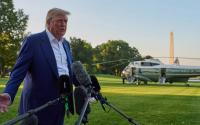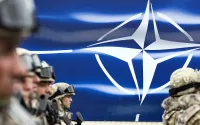30 July 2002
Military action against Iraq is necessary, a leading US academic has claimed, to prevent them using weapons of mass destruction.
Philip Bobbitt, an expert on US constitutional law, said that military action would "prevent weapons of mass destruction going in to the hands of groups it [the US] cannot deter."
In an interview for BBC HARDtalk Mr Bobbitt said he believed that Iraq posed a serious threat to the US.
He said: "It's not that Saddam Hussein attacked the Trade Towers, it's that the groups that attacked the Trade Towers exploited vulnerabilities that we in the US, and you here in Britain are powerless to reduce."
Threat
No evidence has emerged to link Iraq to Al Qaeda or the terrorist attacks on 11 September.
But Mr Bobbitt, who has worked as a senior adviser at the White House, the State Department and the Senate, explained that Al Qaeda and countries such as Iraq posed such a threat because of their potential for destruction.
He said: "I think the administration has not drawn the link between its concern about what it calls 'rogue states' and the attacks on September 11th. Now, there is a link to be drawn, but I don't think they have."
"For five centuries it took a state to destroy another state. Now a small group of persons operating with weapons of mass destruction, international telecommunications, and rapid computation can do what a state had to do in the past."
"You cannot deter a group like that if you can't locate them because you can't retaliate against them."
Lessons
Mr Bobbitt made his comments as speculation continued about whether the US is planning to invade Iraq and remove Saddam Hussein from power.
One reason for a US-led invasion of Iraq could be the refusal by Saddam Hussein to allow UN weapons inspectors to return to the country.
But US plans have met with increasing opposition.
And Mr Bobbitt acknowledged that confusion about what the US is trying to achieve could lead to some distrust of their policies.
He said: "Of course there are lessons to be learned and they not only extend to foreign policy, but to intelligence policy, to our native constitutional law, they extend to alliance policy."
"In Europe and perhaps elsewhere people say what possible connection could there be between 19 hijackers, mainly Saudi, and the development of nuclear weapons in Korea or Iraq. And seeing no connection, yes I think they do feel this distrust."






